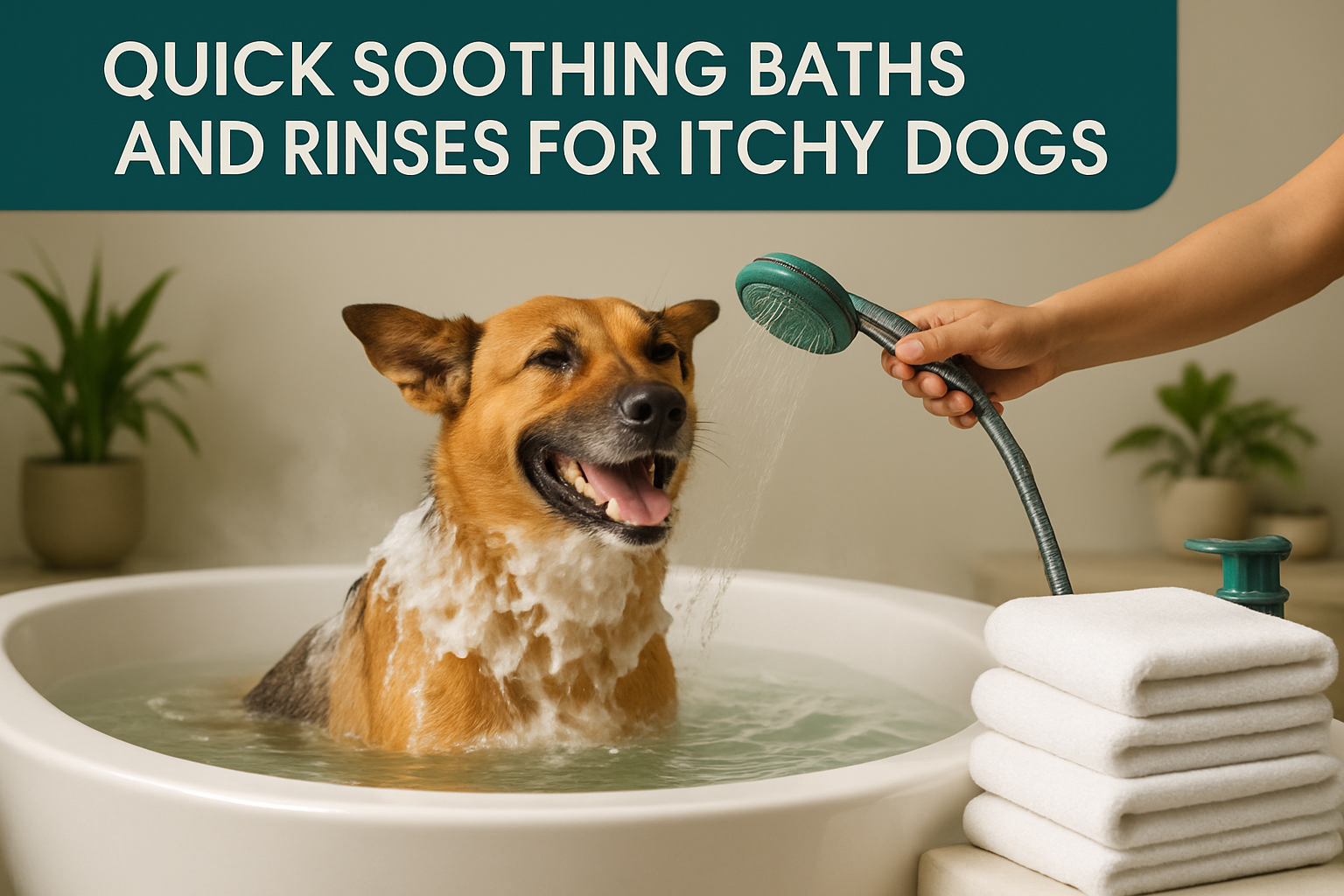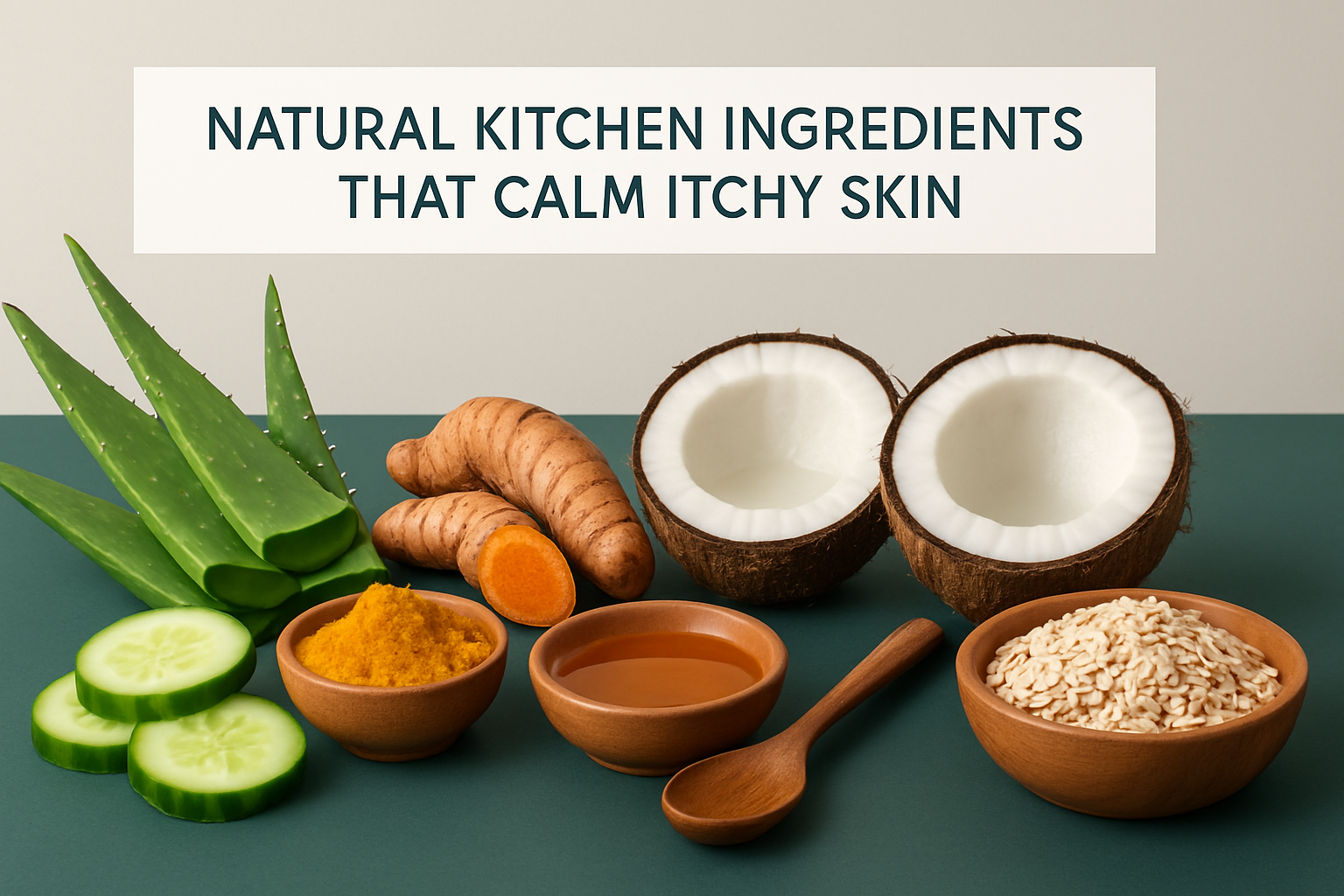Every time your dog scratches, they're sending a clear SOS signal that shouldn't be ignored. Dogs commonly experience itching due to seasonal allergies, food sensitivities, and dry skin. While home remedies can provide relief in many cases, it's important to know when veterinary care is needed. Natural approaches offer safe solutions for your pet's comfort.
Understanding Why Your Dog Is Scratching

Every dog scratches occasionally, but when your furry friend can't seem to stop, it's time to pay attention. Understanding why your dog is scratching is the crucial first step toward providing relief. Let's explore the common triggers and how to distinguish between normal behavior and something more concerning.
Common Triggers for Itchy Skin in Dogs
Your dog's persistent scratching could stem from several sources. Environmental factors like pollen, dust mites, and mold are frequent culprits, especially during seasonal changes. Many dogs develop sensitivities to grass, certain cleaning products, or even fabrics in their bedding.
Food allergies represent another significant trigger. Proteins like chicken, beef, dairy, and wheat are common allergens that can cause uncomfortable skin reactions. These allergies often develop over time, even to foods your dog has eaten for years without previous issues.
Parasites remain one of the most prevalent causes of itching in dogs. Fleas, ticks, mites, and other tiny invaders can create tremendous discomfort. Even a single flea bite can trigger intense itching in sensitive dogs, while microscopic mites can cause conditions like sarcoptic mange or demodectic mange.
Signs of Normal vs. Problematic Scratching Behavior
Understanding why your dog is scratching requires distinguishing normal grooming from problematic behavior. Occasional scratching is perfectly natural – dogs use it to:
• Remove loose hair and debris
• Relieve minor irritations
• Maintain normal coat health
However, watch for these warning signs that indicate something more serious:
• Scratching that interrupts sleep or activities
• Creating bald spots or skin damage
• Accompanying symptoms like redness, swelling, or unusual odor
• Behavior changes like irritability or lethargy
Importance of Identifying Root Causes
Finding the true source of your dog's discomfort is essential before attempting treatment. Without understanding why your dog is scratching, remedies may only provide temporary relief while the underlying issue worsens.
A methodical approach often yields the best results. Consider keeping a journal noting when scratching increases, recent changes in environment or diet, and any patterns you observe. This information proves invaluable during veterinary consultations and helps pinpoint specific triggers affecting your pet's comfort.
Remember that different causes require different solutions – flea treatments won't help food allergies, and anti-allergy medications won't resolve bacterial infections. Proper diagnosis leads to effective, targeted treatment.
Quick Soothing Baths and Rinses for Itchy Dogs

When your furry friend can't stop scratching, immediate relief is essential. Quick soothing baths and rinses for itchy dogs can provide fast comfort while addressing the underlying skin irritation. These natural remedies use simple ingredients you likely already have at home, making them perfect for emergency itch relief between veterinary visits.
Oatmeal Bath Preparation and Application
Oatmeal contains compounds called avenanthramides that reduce inflammation and soothe irritated skin. Creating an effective oatmeal bath for your itchy dog is simple:
- Grind 1 cup of plain, unflavored oatmeal into a fine powder using a food processor or blender
- Fill your bathtub with lukewarm water (hot water can worsen irritation)
- Add the oatmeal powder while the water runs to ensure proper dissolution
- Gently place your dog in the bath, ensuring the mixture reaches affected areas
- Allow your pet to soak for 10-15 minutes, pouring the mixture over their coat
For maximum effectiveness, massage the oatmeal solution gently into your dog's skin. This quick soothing bath for itchy dogs works best when followed by thorough but gentle drying—avoid vigorous rubbing which can increase irritation.
Apple Cider Vinegar Rinse Recipe and Benefits
Apple cider vinegar helps balance skin pH and has natural antimicrobial properties that combat yeast and bacterial overgrowth—common causes of itching in dogs.
Recipe for ACV rinse:
Apply this quick soothing rinse for itchy dogs after bathing by pouring it over your pet's coat and gently working it into the skin. Important: Never use this solution on open wounds, cuts, or raw skin as it will cause stinging.
Herbal Tea Soaks for Reducing Inflammation
Certain herbal teas contain natural anti-inflammatory compounds that can provide relief for itchy dogs. Chamomile and green tea are particularly effective:
Chamomile soak:
Green tea rinse:
These herbal soaks provide quick soothing relief for itchy dogs while supporting the skin's natural healing process. Apply these treatments 2-3 times weekly until symptoms improve.
Natural Kitchen Ingredients That Calm Itchy Skin

When your furry companion can't stop scratching, relief might be closer than you think. Natural kitchen ingredients that calm itchy skin offer safe, effective alternatives to chemical-based remedies. These everyday items can provide immediate comfort while supporting your pet's skin health naturally.
Coconut Oil Application Methods and Benefits
Coconut oil stands as a powerhouse remedy for dry, flaky pet skin. This versatile oil contains medium-chain fatty acids with antimicrobial and moisturizing properties that soothe irritation while creating a protective barrier.
For optimal results, warm a small amount of organic, virgin coconut oil between your palms until liquified. Gently massage into affected areas, paying special attention to dry patches. The oil absorbs quickly, providing immediate relief while helping to restore the skin's natural moisture balance.
For pets with severe dryness, consider a weekly coconut oil "spa treatment." Apply a thin layer across their coat, allow it to penetrate for 10-15 minutes, then rinse with warm water. This routine helps maintain skin hydration and reduces the urge to scratch.
Plain Yogurt as a Probiotic Treatment
Many cases of persistent itching stem from yeast overgrowth on the skin. Plain, unsweetened yogurt contains beneficial probiotics that help restore balance to your pet's skin microbiome.
Apply a thin layer of chilled plain yogurt directly to irritated areas, allowing it to sit for 5-10 minutes before gently wiping away. The cooling sensation provides immediate itch relief, while the living cultures help combat harmful yeast.
For internal support, a small spoonful of yogurt with meals can strengthen your pet's gut health, which directly impacts skin condition. Always choose plain varieties without sweeteners or additives, as these can worsen symptoms.
Aloe Vera Gel for Hot Spots
Fresh aloe vera gel delivers cooling, anti-inflammatory relief for hot spots and irritated skin. This natural kitchen ingredient that calms itchy skin works by reducing inflammation while promoting healing.
For application, slice open an aloe leaf and apply the clear gel directly to irritated areas. The immediate cooling sensation provides comfort while its bioactive compounds work to reduce inflammation and speed healing.
For convenient use, keep pure aloe gel in your refrigerator. Apply 2-3 times daily to problem areas until improvement is visible. The natural compounds help restore skin integrity while providing the relief your pet desperately needs.
Preventive Home Care to Reduce Recurring Itchiness
Persistent itching in pets can be distressing for both animals and their owners. Implementing proper preventive home care to reduce recurring itchiness can significantly improve your pet's comfort and quality of life. A proactive approach that focuses on daily maintenance can minimize allergen exposure and support skin health naturally.
Regular Grooming Techniques to Remove Allergens and Distribute Natural Oils
Consistent grooming serves as the first line of defense against skin irritants. Brushing your pet daily not only removes loose fur but also eliminates environmental allergens that may have settled on their coat. This simple preventive home care routine helps distribute natural oils across their skin, providing a protective barrier against irritants.
For dogs with longer coats, consider using a slicker brush followed by a comb to reach the undercoat. Cats generally benefit from soft-bristle brushes that won't irritate their sensitive skin. Remember that bathing too frequently can strip essential oils, so limit baths to once every 3-4 weeks using gentle, hypoallergenic shampoos specifically formulated for pets with sensitive skin.
Diet Adjustments to Support Skin Health from Within
What goes into your pet's body directly impacts their skin condition. Nutritional preventive home care focuses on incorporating omega-3 fatty acids, which have anti-inflammatory properties that can reduce itchiness. Consider foods rich in these beneficial fats or supplements if your veterinarian recommends them.
Hydration also plays a crucial role in maintaining healthy skin. Ensure your pet always has access to fresh, clean water. Some pets with recurring skin issues may benefit from elimination diets to identify potential food allergies. Common triggers include certain proteins, grains, and artificial additives that may contribute to itchy skin.
Creating a Clean Living Environment that Minimizes Allergen Exposure
Your home environment significantly impacts your pet's skin health. Effective preventive home care includes regular vacuuming with HEPA filters to reduce dust mites and dander. Wash your pet's bedding weekly in hot water with fragrance-free detergent to eliminate accumulated allergens.
Monitor humidity levels in your home, as both excessive dryness and moisture can trigger skin issues. Aim for 40-60% humidity for optimal comfort. During high pollen seasons, wipe your pet's paws and coat with a damp cloth after outdoor activities to remove potential irritants before they spread throughout your home.
By implementing these preventive home care strategies consistently, you can significantly reduce recurring itchiness and help your pet enjoy a more comfortable, scratch-free life.
Conclusion
While these home remedies can provide effective relief for itchy dogs, it's important to monitor your pet's response to treatments. Remember that some skin conditions require professional veterinary care. Focus on a holistic approach to maintain your dog's skin health.
For persistent skin issues, consider Unleash Wellness's scientifically formulated supplements that support skin health from within, developed by veterinarians without preservatives or common allergens.




